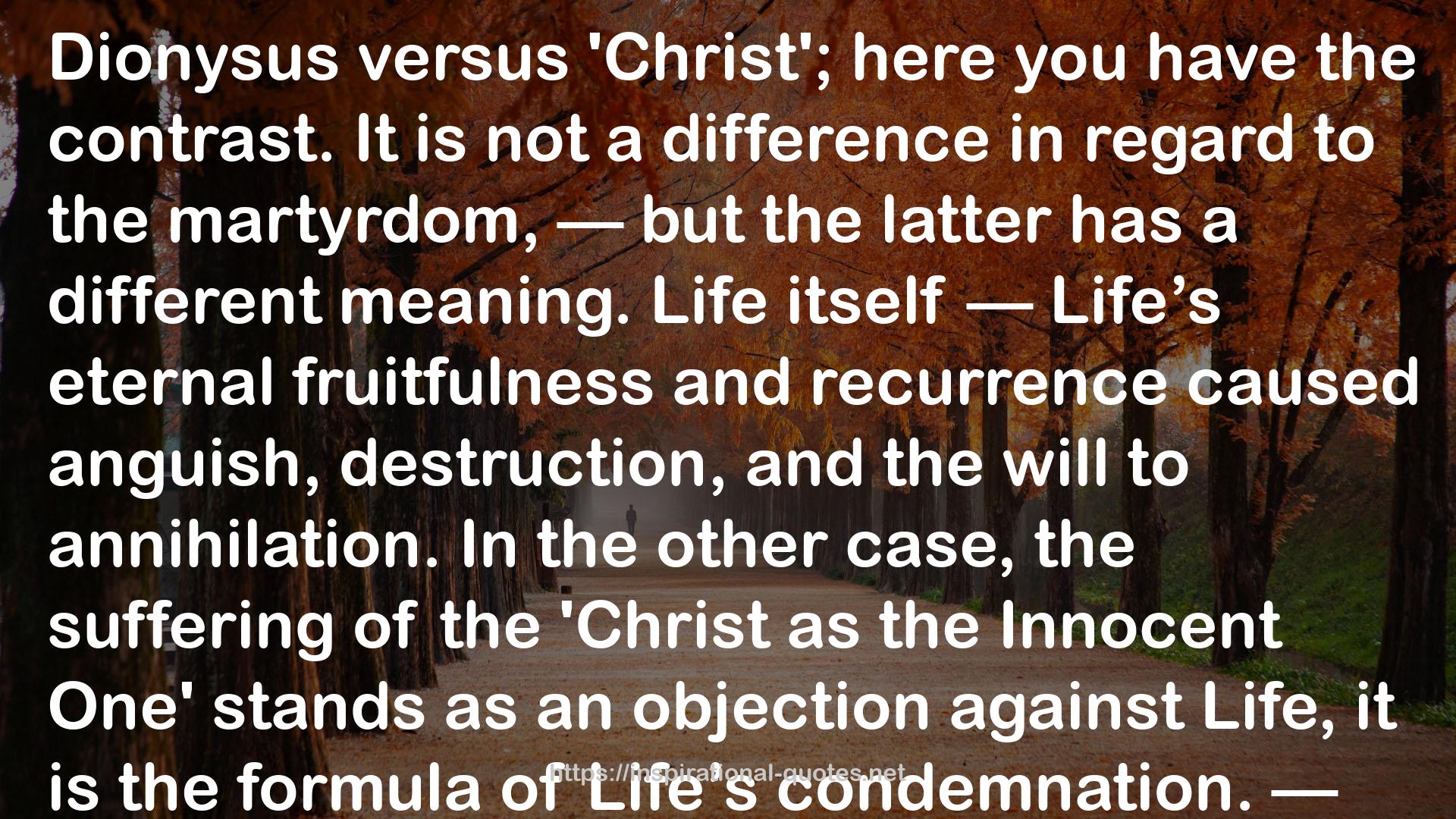" Dionysus versus 'Christ'; here you have the contrast. It is not a difference in regard to the martyrdom, — but the latter has a different meaning. Life itself — Life’s eternal fruitfulness and recurrence caused anguish, destruction, and the will to annihilation. In the other case, the suffering of the 'Christ as the Innocent One' stands as an objection against Life, it is the formula of Life’s condemnation. — Readers will guess that the problem concerns the meaning of suffering; whether a Christian or a tragic meaning is given to it. In the first case it is the road to a holy type of existence; in the second case existence itself is regarded as sufficiently holy to justify an enormous amount of suffering. The tragic man says yes even to the most excruciating suffering: he is sufficiently strong, rich, and capable of deifying, to be able to do this; the Christian denies even the happy lots on earth: he is weak, poor, and disinherited enough to suffer from life in any form. God on the Cross is a curse upon Life, a signpost directing people to deliver themselves from it; — Dionysus cut into pieces is a promise of Life: it will be forever born anew and rise afresh from destruction. "
― Friedrich Nietzsche , The Will to Power
